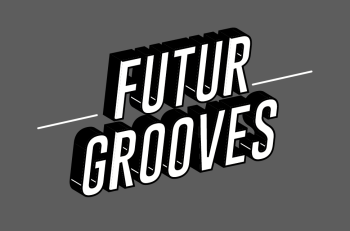
Electronic music as we know it today would be very different without the contribution of women. Indeed, two pioneers from the 1960s paved the way for this musical genre that transports and resonates with us today.

Let’s start by mentioning the creator of Oramics, Daphne Oram, our first pioneer who designed the first electronic composition machine.
Her story begins in the 1940s while working at the BBC, where she dedicated her free time to experimenting with tape recorders and synthetic sound.
It is during this period that she created her first piece of electronic music titled ‘Still Point’ in the early electronic genre.
Driven by her ambitions, she decided to create her own electronic composition studio and developed an innovative sound drawing technique: Oramics.
Oramics allows shaping sound by drawing shapes on clear film strips, one for pitch and another for controlling volume, timbre, or vibrato.
This creation will have an impact on the process of creating electronic music.

Our second pioneer is Delia Derbyshire, a graduate in mathematics and musicology, but above all, a revolutionary in the fields of musical creation.
She’s a major influence figure among psychedelic and electronic artists.
Her sound explorations, such as using the sound of struck objects or exploiting a sinusoidal generator mixed with the use of tape recorders, allowed the creation of something that digital instruments of the time could not yet replicate “electro sound”.
Moreover, she’s responsible for the iconic soundtrack of the BBC series ‘Dr. Who.’ However, she was never credited under her name and didn’t receive the recognition and credits she deserved.
Today, women are much more recognized in the world of nightlife.
At an equal level with men? No, we’re not there yet. Sexism still exists in the music industry, even if unintentional, it is ingrained in a society that makes women doubt their talent and their place in the nightlife scene.
Progress is still noticeable. There has been an evolution among international music festivals. Today, 21% of represented artists are women, compared to just 2% fifteen years ago.

It’s obviously not fair yet, which is why female collectives are being created to bring about change in the industry.
(e.g : Vénus club, Écoute meuf, burenhinder…)
How ?
- By creating some formations and workshops to raise awareness about inequalities.
- By identifying young DJs to make them shine into the spotlight.
- And finally by establishing a climate of fairness and open-mind in order to allow women to learn the profession of Dj and producer among themselves. Without pression and sexism in the background.


Future Female Sounds is an international and free organization that was created with the aim of providing free workshops to women and gender minorities in dj skills and career management.
This allows women to progress in their DJing projects without experiencing the male pressure and internal sexism coming from this male world of industry.

A good local alternative here in Brussels is FUTURGROOVES, a place for sharing and creating what we like with a strong team spirit and mutual support.
Our goal is to promote contemporary music to everyone, by all means. We offer music production courses, DJing classes for all levels of Dj’s skills, and finally music initiation classes for children.



It’s also encouraging to see talented artists such as Amelie Lens, Sara Laundry, Charlotte de Witte, Anetha, Indira Paganotto, Nina Kraviz, Peggy Gou, Fatima Hajji, Sama Abdulhadi, and many others now headlining the biggest electronic events around the world.
However, it’s important to recognize that progress still needs to be made. even if the emergence of these female talents in the world of electronic music remains marked by capitalism, patriarchy, sexism, and racism.
These realities are in conflict with the initial values of this universe.
This universe that finds its roots in the queer and Afro-American culture of Detroit, where techno is born.

In conclusion, we must continue to fight, not give up, and confront our fears. Continuing to promote diversity, inclusion, and equality in the music industry is fundamental to all artists to be recognized for their talent and contribution to this creative universe and not hidden in the shadow of men and ingrained sexism.
